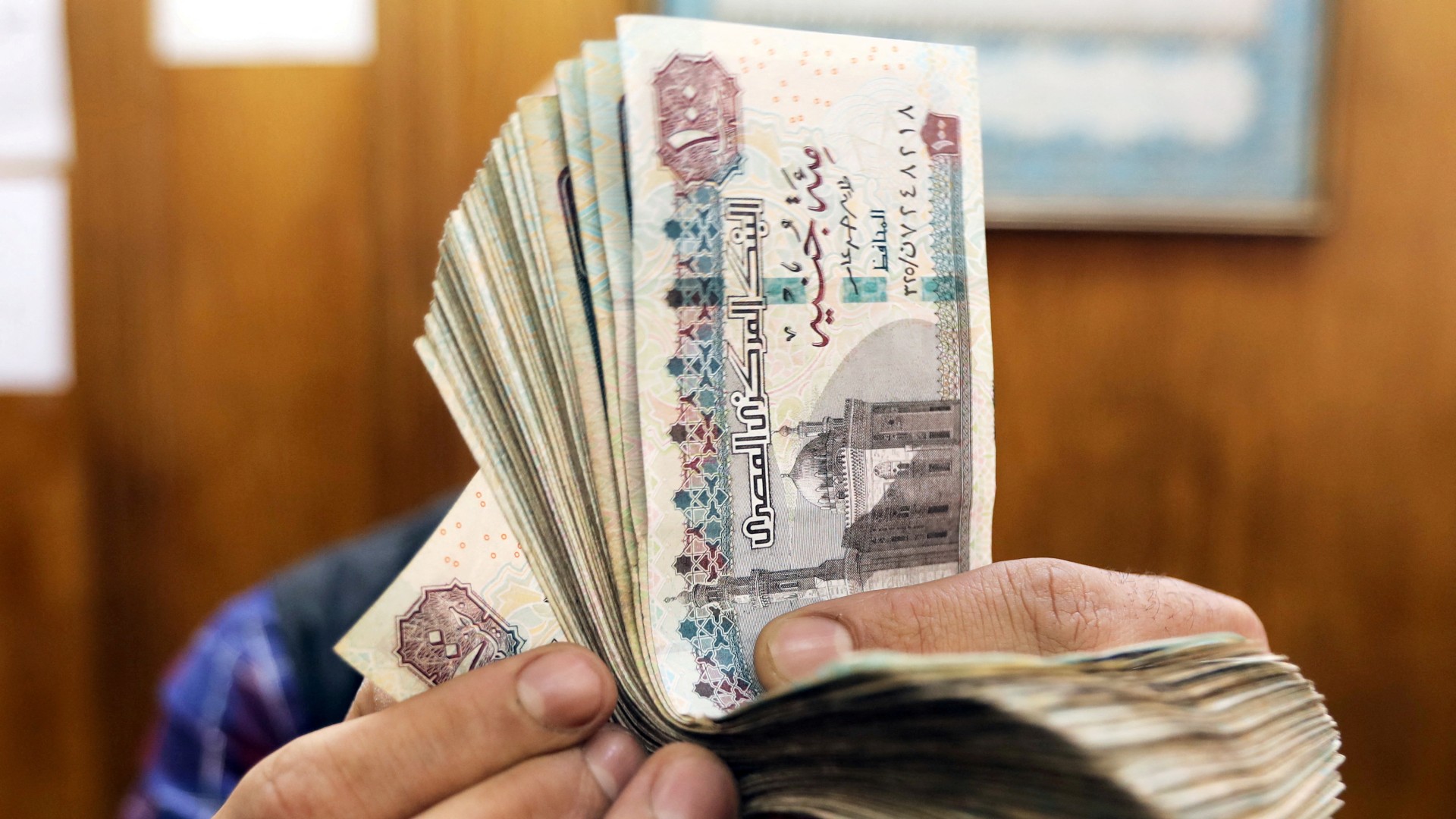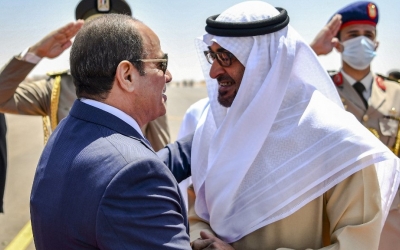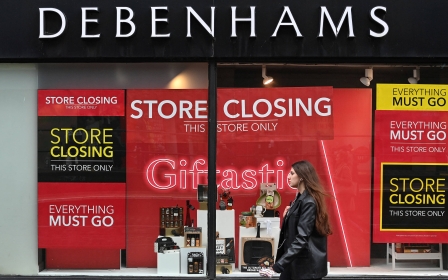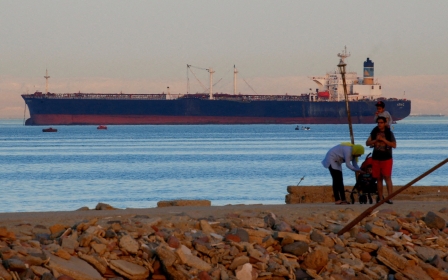Egypt pound devaluation 'just a band-aid' as inflation spiral looms
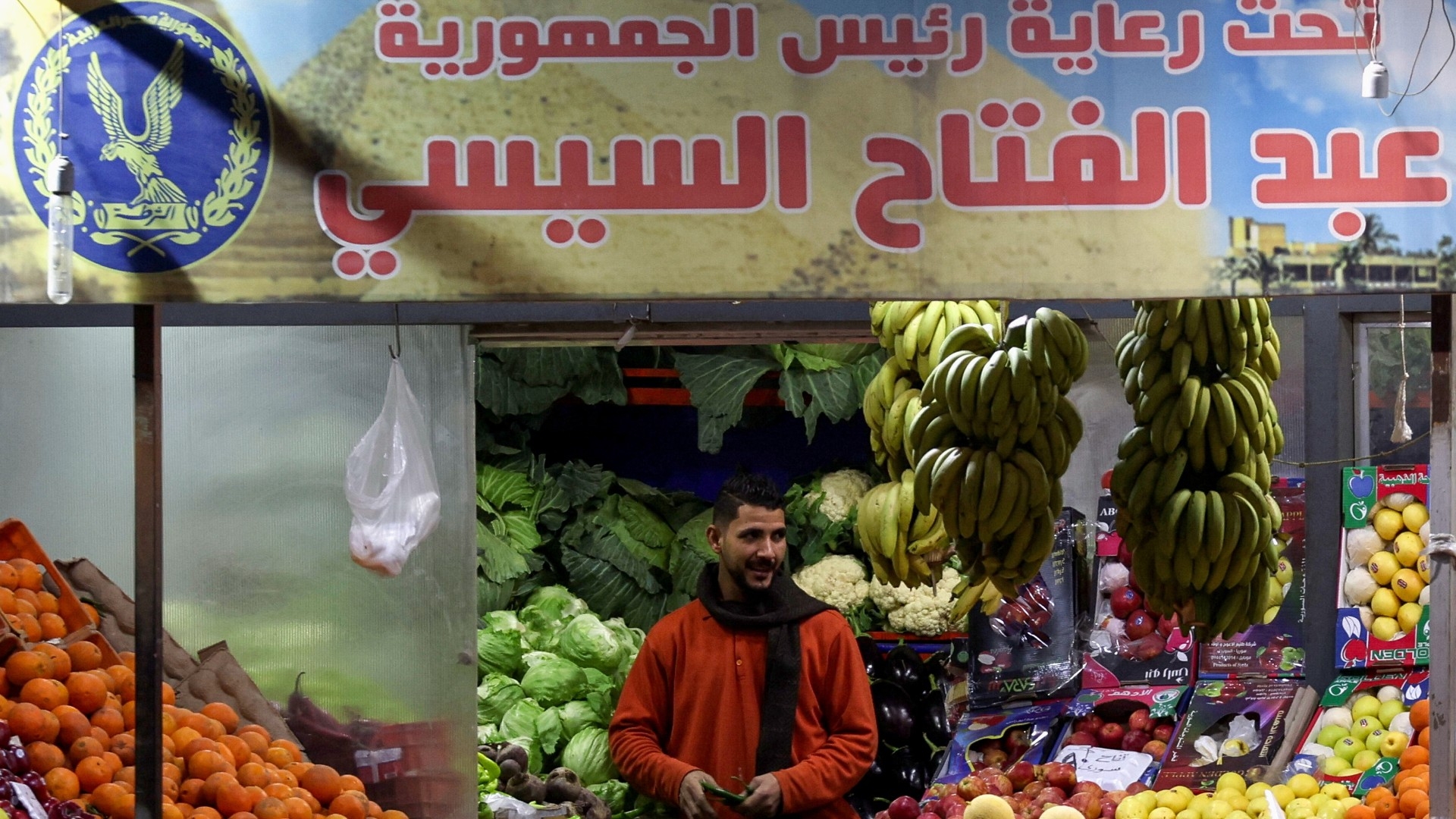
Sherif Saeed, a cafe worker from Giza, used to purchase a breakfast of fava beans, salad, bread and an egg from a local street cart for six Egyptian pounds.
But that was in 2011. Now the same order costs him more than 40 pounds ($0.57 at black-market rates).
"The metro ticket which was one pound a decade ago is now 20," he told Middle East Eye. "I work in the street all day, and I'm starting to see a lot of homeless people. They are decent, fair-minded people, but they can't afford a home."
In the cafe, when Saeed receives a one-pound tip, he often returns it to the customer. "I consider it a humiliation," he said.
Egypt's currency plunged this week to an unprecedented low of 72 pounds to the dollar in the parallel market. That rate is significantly below the official exchange rate, which stood at around 31.
New MEE newsletter: Jerusalem Dispatch
Sign up to get the latest insights and analysis on Israel-Palestine, alongside Turkey Unpacked and other MEE newsletters
To bring the official rate closer to the parallel one, so that remittances and other foreign exchanges enter the economy, reports are swirling that a currency devaluation is imminent.
Dominique Fruchter, an economist with a focus on Africa at French insurance company Coface, told Middle East Eye: "The current level of the [official] Egyptian pound is uncompetitive. They have to devalue; it's a condition that has been put by the IMF [International Monetary Fund] for its financial programme.
"As long as there's no devaluation, there won't be a programme." he added.
'Devaluation only a band-aid'
Egypt is on the verge of agreeing a new financial package with the IMF, according to multiple reports.
Cairo already has a $3bn IMF package in place, but has received very little of it. That is due to slow progress in the sale of state assets, in exchange rate flexibility and in other economic reforms spelt out by the fund.
'There are even some vegetables like onions and tomatoes that are now very difficult to buy'
- Safaa, Egyptian cleaner
Devaluation of the currency, a key demand by the IMF, was delayed by President Abdel Fattah el-Sisi in the run-up to December's elections as it will almost certainly exacerbate Egypt's already sky-rocketing inflation.
Khalid Ikram, a former director of the World Bank's Egypt department, told MEE: "Devaluation will come, but it will only be a band-aid."
Ikram said that devaluation would change the nominal exchange rate but not the real-terms exchange rate adjusted for inflation. He warned of a likely devaluation-inflation spiral to follow.
"The remittances coming in through unofficial channels because they were more favourable will move to official channels," said Ikram. "But if inflation continues to be higher than [that of] competitors, the black market will arise and it will shift back."
Inflation hit a record-high 38 percent in September, before falling slightly to 34 percent at the end of last year.
Soaring prices have left Egyptians desperately struggling to make ends meet.
Safaa, 58, a cleaner at the main hospital in Giza's island of al-Warraq, said that she has stopped buying meat and chicken, and now makes all her food with starch, potatoes and bread.
"There are even some vegetables like onions and tomatoes that are now very difficult to buy," she told MEE.
She added that when she wants to treat her children, she buys left-over food sold by friends who work at luxury restaurants and hotels.
Fruchter said: "The government must take care of the population. It cannot just apply IMF remedies, or there could be a big risk of riots.
"They have to help the most needy persons with social programmes," he added, making reference to the Takaful and Karama programme, a state-sponsored social security scheme.
'Bread and surveillance'
Ikram, who has analysed Egypt's economic development for more than 40 years, believes that while Cairo's expenditure is decided by domestic factors, the country's revenues are too dependent on volatile external factors.
On the domestic side, he said, there was a fundamental political economy issue: successive authoritarian governments had provided basic public services, state subsidies and low taxation, in return for remaining in power.
'The Romans used to have bread and circuses. Egypt's philosophy is bread and surveillance'
- Khaled Ikram, former World Bank Egypt programme director
"The Romans used to have bread and circuses," said Ikram. "Egypt's philosophy is bread and surveillance, to stop [the population] making a nuisance of themselves."
But when it comes to adding to state coffers, the economy is exposed to international elements.
"Suez Canal revenues depend on the state of the world economy, [financial] aid decisions are taken in foreign capitals and remittances depend on the economic health of where workers are," Ikram said.
Several of these external factors have devastated Egypt in recent months and years.
Russia's invasion of Ukraine in 2022 increased the price of oil and food, especially wheat, of which Egypt is the world's largest importer and Russia and Ukraine are among the largest suppliers.
More recently, there has been marked fall in tourism, one of Egypt's largest sources of income, due to the war in Gaza.
Meanwhile the Suez Canal, another crucial source of revenue, has seen a slowdown of traffic by up to 30 percent compared with last year, due to shipping companies avoiding the Red Sea over fears of being attacked by Yemen's Houthi movement, officially known as Ansar Allah.
Remittances from Egyptians abroad also fell by 29 percent in the first quarter of the present fiscal year, in comparison to the previous year.
'No use in education now'
Circumventing such volatile external factors would require Egypt to make long-term strides in manufacturing and exporting, which would mean addressing decades-long issues around poor productivity, education and infrastructure.
But for cash-strapped Egyptians, structural considerations are far from their immediate concerns.
"There is no use in education now," said Safaa. "There are college graduates who come to the hospital and want to work as security guards or gardeners.
"Under this system, we will always be poor and impoverished, and will never be looked at as prosperous and decent. So having a degree or not is not going to matter."
She said she was considering withdrawing her children from school as a result.
Ahmed Hassanen, 23, a law graduate in Alexandria, said he gave up a 2,500 pounds-a-month office-based clerk job to become a security guard at a luxury compound.
He now earns 4,000 pounds a month, and receives free food and accomodation.
"It is a tiring job, but that is what is available. I send 2,000 pounds to my parents and keep 2,000, and I work six days a week for 12-hour shifts," he told MEE.
"I have to work and run like a chicken in order to feed myself and my family, otherwise we will literally become hungry in these dark days."
Middle East Eye delivers independent and unrivalled coverage and analysis of the Middle East, North Africa and beyond. To learn more about republishing this content and the associated fees, please fill out this form. More about MEE can be found here.


